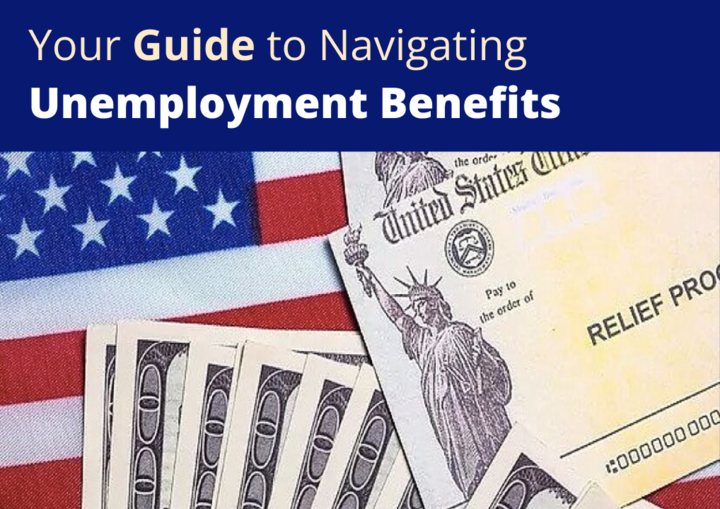A credit score is a numerical representation of an individual’s creditworthiness, typically ranging from 300 to 850. This score is derived from various factors, including payment history, credit utilization, length of credit history, types of credit in use, and recent credit inquiries. Each of these components plays a crucial role in determining how lenders perceive a borrower’s risk level.
For instance, a higher score indicates that a person is more likely to repay borrowed money, while a lower score suggests potential financial instability. Understanding the intricacies of your credit score is essential for making informed financial decisions. The most commonly used credit scoring models are FICO and VantageScore.
FICO scores are utilized by approximately 90% of lenders, making them the industry standard. The scoring model assigns different weights to the various factors; for example, payment history accounts for 35% of the FICO score, while credit utilization makes up 30%. This means that consistently paying bills on time can significantly boost your score, while high credit card balances can have a detrimental effect.
By grasping how these elements interact, individuals can take proactive steps to improve their scores and enhance their financial standing.
Key Takeaways
- Your credit score is a numerical representation of your creditworthiness and is used by lenders to determine your credit risk.
- It’s important to regularly check your credit report for errors and unauthorized activity to maintain a good credit score.
- Paying your bills on time is crucial for maintaining a good credit score and avoiding late fees and negative marks on your credit report.
- Keeping your credit card balances low relative to your credit limit can positively impact your credit score.
- Opening too many new accounts in a short period of time can negatively impact your credit score and make you appear risky to lenders.
- If you find errors on your credit report, it’s important to dispute them with the credit bureau to have them corrected.
- Using different types of credit, such as credit cards, loans, and mortgages, can positively impact your credit score.
- Building and maintaining a good credit score takes time and persistence, so it’s important to be patient and stay on top of your credit management.
Checking Your Credit Report
Regularly checking your credit report is a fundamental practice for anyone looking to maintain or improve their credit score. A credit report provides a detailed account of your credit history, including open accounts, payment history, and any public records such as bankruptcies or liens. In the United States, consumers are entitled to one free credit report per year from each of the three major credit bureaus: Experian, TransUnion, and Equifax.
This allows individuals to monitor their credit status without incurring any costs. When reviewing your credit report, it is vital to scrutinize every detail carefully. Errors can occur due to clerical mistakes or identity theft, and these inaccuracies can negatively impact your credit score.
For example, if a late payment is incorrectly reported on your account, it could lower your score significantly. By checking your report regularly, you can identify and address these issues promptly. Additionally, understanding the information contained in your report can help you make strategic decisions about borrowing and managing debt.
Paying Your Bills on Time
Timely bill payment is one of the most critical factors influencing your credit score. Payment history constitutes the largest portion of your FICO score calculation, making it imperative to establish a habit of punctuality when it comes to settling debts. Late payments can remain on your credit report for up to seven years, which can severely hinder your ability to secure loans or favorable interest rates in the future.
Therefore, developing a system to ensure that bills are paid on time is essential for maintaining a healthy credit profile.
One effective strategy for managing bill payments is to set up automatic payments for recurring expenses such as utilities, mortgages, and credit cards.
This not only helps avoid late fees but also ensures that payments are made consistently.
Additionally, utilizing reminders through calendars or mobile apps can serve as an effective backup system for those who prefer manual payments. By prioritizing timely payments, individuals can build a positive payment history that will contribute significantly to their overall credit score.
Keeping Your Credit Card Balances Low
Credit utilization refers to the ratio of your current credit card balances to your total available credit limit. This metric is another crucial component of your credit score calculation and typically accounts for about 30% of your FICO score. Maintaining low balances relative to your credit limits demonstrates responsible credit management and can positively influence your score.
Ideally, experts recommend keeping your utilization below 30%, but lower percentages are even more favorable. To effectively manage credit card balances, consider strategies such as paying off balances in full each month or making multiple payments throughout the billing cycle. This approach not only helps keep utilization low but also minimizes interest charges that can accumulate over time.
Additionally, if you find yourself consistently nearing your credit limit, it may be wise to request a credit limit increase from your card issuer. This can provide more available credit and help lower your utilization ratio without requiring you to change your spending habits.
Avoiding Opening Too Many New Accounts
While it may be tempting to open multiple new credit accounts in pursuit of rewards or benefits, doing so can have adverse effects on your credit score. Each time you apply for new credit, a hard inquiry is generated on your report, which can temporarily lower your score. Moreover, opening several accounts in a short period may signal to lenders that you are experiencing financial distress or are taking on more debt than you can handle.
To maintain a healthy credit profile, it is advisable to limit the number of new accounts opened within a short timeframe. Instead of applying for multiple cards at once, consider evaluating your needs and selecting one or two that align with your financial goals. Additionally, if you are looking to improve your credit mix—another factor in scoring—consider options such as secured loans or installment loans rather than simply adding more revolving accounts.
Disputing Errors on Your Credit Report
Consequences of Credit Report Errors
Errors on your credit report can have significant consequences for your financial health, making it essential to address them promptly. If you discover inaccuracies—such as incorrect account information or fraudulent accounts—you have the right to dispute these errors with the respective credit bureau.
Disputing Errors: A Step-by-Step Guide
To initiate a dispute, gather supporting documentation that substantiates your claim and submit it along with a formal dispute letter to the relevant bureau. Be sure to include details such as your name, address, and account numbers associated with the error.
Monitoring Progress and Following Up
After submitting your dispute, monitor the progress and follow up if necessary. The Fair Credit Reporting Act (FCRA) mandates that bureaus investigate disputes within 30 days and correct any inaccuracies found.
The Benefits of Disputing Errors
Successfully disputing errors can lead to an improved credit score and better borrowing opportunities.
Using Different Types of Credit
Diversity in the types of credit accounts you hold can positively impact your credit score by demonstrating responsible management across various forms of debt. Credit scoring models favor individuals who have experience with different types of credit—such as revolving accounts (credit cards), installment loans (auto loans or mortgages), and retail accounts (store cards). This variety shows lenders that you can handle different financial obligations effectively.
To build a diverse credit profile, consider strategically adding different types of accounts over time rather than accumulating multiple similar accounts. For instance, if you primarily use credit cards, you might explore taking out an installment loan for a vehicle or home improvement project. However, it’s crucial to ensure that any new debt aligns with your financial capabilities and goals; taking on too much debt can lead to financial strain and negatively affect your score.
Being Patient and Persistent
Improving your credit score is often a gradual process that requires patience and persistence. Many individuals expect immediate results after implementing changes in their financial habits; however, building a solid credit history takes time. Factors such as payment history and length of credit history cannot be altered overnight; thus, it’s essential to remain committed to long-term strategies that promote healthy financial behavior.
Staying informed about best practices in credit management is also vital during this journey. Regularly educating yourself about changes in scoring models or new financial products can empower you to make informed decisions that benefit your credit profile. By maintaining a proactive approach and being patient with the process, individuals can gradually see improvements in their scores and enjoy the benefits of better lending terms and financial opportunities over time.
FAQs
What is a credit score?
A credit score is a numerical representation of an individual’s creditworthiness, based on their credit history and financial behavior.
Why is a good credit score important?
A good credit score is important because it can affect an individual’s ability to secure loans, credit cards, and other financial products. It can also impact the interest rates and terms offered by lenders.
How can I improve my credit score?
To improve your credit score, you can pay your bills on time, keep your credit card balances low, avoid opening too many new accounts, and regularly check your credit report for errors.
How long does it take to improve a credit score?
The time it takes to improve a credit score can vary depending on individual circumstances. Generally, it can take several months to see significant improvements, but it may take longer for more substantial changes.
What are some common factors that can negatively impact a credit score?
Common factors that can negatively impact a credit score include late payments, high credit card balances, collections accounts, and bankruptcy.
Can I check my credit score for free?
Yes, you can check your credit score for free through various online services and financial institutions. It’s important to regularly monitor your credit score to stay informed about your financial health.







